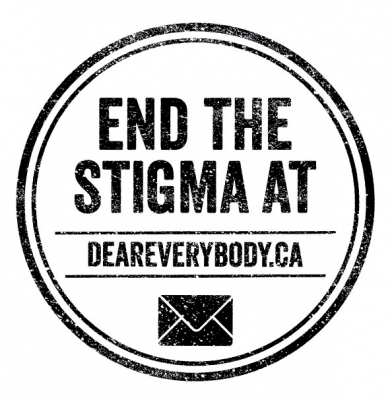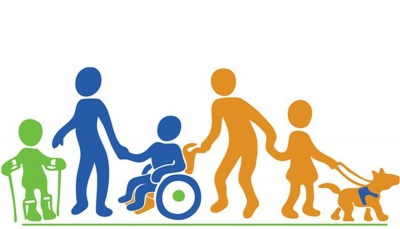“You bring your deformed children to us and expect us to fix things”
“What’s wrong with him? “
“It doesn’t matter; he can’t understand what is happening anyway”
“Why do you want the kids to go to the park with her? They don’t want to go to the park. Just because they are her cousins, doesn’t mean they have to go to the park with her.”
“I am not sure how to tell you this, when I was at the school today, I saw that they were feeding your son his lunch, in the washroom. I thought you should know.”
“The last time my daughter was invited to a birthday party was when he was 8 years old.”
“They won’t listen to me at school, they have labelled me as a crazy parent. All I want is to work together to make school a positive experience for everyone. It’s their way, or no way. I don’t know what to do.”
“The support system for people who have a disability is inhumane. Children and youth are given opportunity during school years however when they are finished high school, they are essentially shut out by society. That’s not right.”
“I am sorry Mr. Principal, but I do not want my 13-year-old son going on a field trip to see Santa Claus at the mall. What 13-year-old believes in Santa Claus? How degrading!”
“I am so worried about what is going to happen to her when I can no longer take care of her. I know there are programs and group homes, but I am not sure that I can trust anyone else to give her the safe, active and wholesome life that she has lived for so many years.”
“If I had to change such a messy bowel movement every day, I would quit my job.”
“You have been starving my son. His only form of nutrition is his formula that goes through his g-tube. I just found out that you have been cutting short, the amount of food that he gets at lunch time. Do you realize what you are doing? This has been going on for over 2 months? Why didn’t anyone call me to talk about this?”
Heard enough? It’s heart-breaking, isn’t it? For many years, I have heard the stories of many parents and when Eric was alive, I lived through stories of my own.
So when I heard about “Dear Everybody”, I was ecstatic! Initiated by the Holland Bloorview Kids Rehabilitation Hospital, this campaign is designed to reduce stigma around disability, in the classroom, workplace and community.
There are some obvious reasons why this is an important crusade. For one, it can dispel myths about people who have a disability and help to change beliefs. People will have a greater understanding of people’s abilities and what they can do, rather than what they cannot. People may not stare as often and might offer a “hello”.
From a parent’s perspective, there are deeper and more profound reasons why “Dear Everybody” is welcomed.
- Children and their parents won’t have to have to fight the battle alone
When you have a child diagnosed with a disability, you feel all alone. Sure, there are community organizations and support groups that provide assistance, but when it comes down to the day to day stress, worry, and frustration, parents are on their own. Advocating for their child can be intimidating and exhausting. By telling real stories, children and their parents have a greater chance of support from outside of their family and feel more empowered and supported.
- Parents won’t have to ask, people will offer
Asking for help can be very difficult for a parent. We don’t want to impose on others. With greater understanding, more people may be inclined to offer their assistance and take the burden away from parents.
- More awareness and more action to make a difference.
You’ve heard the expression, “you don’t know what you don’t know”. If people have a greater understanding of the barriers and challenges that people who have a disability regularly encounter, they are more likely to take action that will make a difference.
- Greater authenticity
Instead of people and society acting upon obligation or because it’s the right thing to do, they will act because they truly want to. Inclusion will be from the heart.
- System /Societal changes
If you speak with a parent who has a son or daughter with a disability, they will tell you about the challenges they face. Over and above the daily care and support, parents will often express that what causes the most stress are the barriers within the health care and support system and in the attitudes of society in general. More opportunity to learn about the barriers, the greater the chance of creating systemic and societal change.
- Less cruelty and mistreatment
While we want to believe that we live in a progressive minded world, where everyone is treated fairly and with respect, it’s important to be honest and realize that this isn’t necessarily true. People are still marginalized, ridiculed, and excluded. Discrimination still exists. With more people aware of negative actions, the greater the likelihood that mistreatment will be recognized and not tolerated.
- Increased trust
As more and more people are informed and educated about disability, the benchmark or standard for support and caregiving will increase. There will be more eyes on the situation. Principles and values will provide guidelines for a higher level of safety, support, opportunities and partnership. Measurement and evaluation will be more important than ever so that parents will know that there is upmost quality and sincerity in the support of their son or daughter when they are not around.
- More openness and less shame
There are so many families who are still timid and shy to be open about their son or daughter’s disability, possibly due to feelings of guilt or shame. As we talk more and more about disability and reduce stigma, the more comfortable and confident parents will be in sharing their stories and reaching out for help.
- All people are valued
Everyone has something to offer to mankind. From a smile from the kid down the street to the research by a world renowned physicist, people who have a disability have many valuable contributions to share. People will be given more opportunity in school and in the workforce and will be valued for what they have to offer.
- People supporting people
Realization that people who have a disability have the same desires and wishes as anyone else. As we spread the word, share stories, talk about the possibilities and open up to one another, we will see a movement where people will support people in a natural way and that no one will ever be left behind.

Please connect to the Dear Everybody campaign to stay informed and learn more about what you can do to ensure that all people have a healthy and meaningful life.
~ Lisa







Get Social